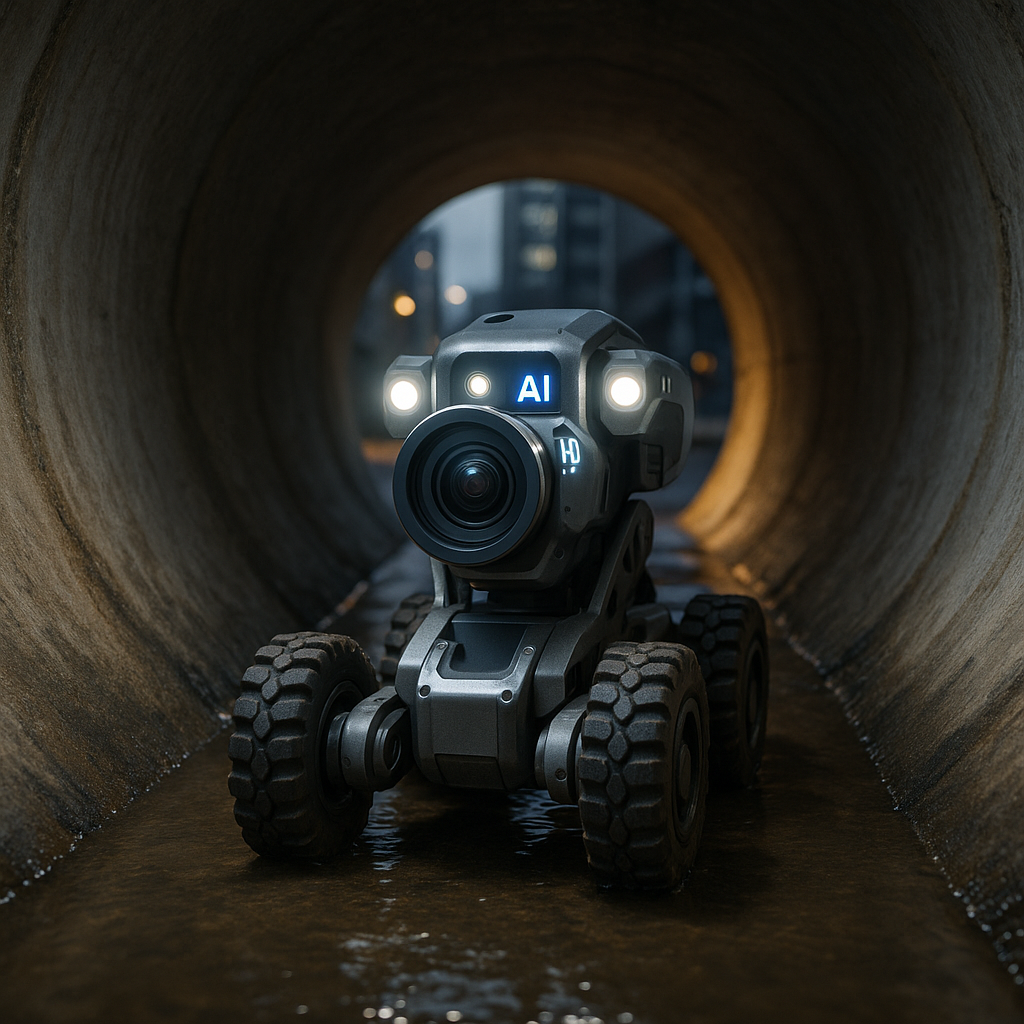Revolutionizing Pipe Material Maintenance in 2024
Explore cutting-edge technologies transforming pipe maintenance with robotics, AI, and smart systems for enhanced efficiency and sustainability.

Revolutionizing Pipe Material Maintenance in 2024
In the dynamic landscape of 2024, the realm of pipe material maintenance is undergoing a transformative shift. This evolution is driven by the integration of advanced robotics, AI-driven inspection technologies, smart plumbing systems, and a strong focus on sustainability. These innovations are not only enhancing inspection accuracy but are also paving the way for predictive maintenance and eco-friendly practices.
The Role of New Technologies and Equipment
Robotics and AI in Inspection
The incorporation of robotics and AI technologies in sewer inspection is a game-changer. Autonomous crawler robots equipped with high-definition, pan-and-tilt cameras are revolutionizing visual assessments of pipe interiors. These robots eliminate the need for manual entry, thereby enhancing safety and efficiency. AI-powered software further automates defect detection, identifying cracks, corrosion, and root intrusion with remarkable precision.
Advanced 3D Mapping and GIS Integration
Advanced 3D mapping and Geographic Information System (GIS) integration are instrumental in precise condition assessments and infrastructure management. These tools facilitate detailed visualization of underground networks, allowing for better planning and maintenance strategies.
Robotic Systems in Plumbing
In the plumbing sector, robotic systems are now capable of diagnosing and repairing leaks autonomously. They can also perform drain cleaning, reducing downtime and labor costs significantly. This technological leap is particularly beneficial for maintaining complex residential and municipal plumbing systems.
Adhering to Industry Regulations and Standards
While specific 2024 regulatory updates are yet to be fully detailed, compliance with existing local, state, and federal regulations remains crucial. These regulations often favor companies with the capacity to invest in advanced systems, posing challenges for smaller operators. However, the push towards sustainability and efficiency is likely to shape future regulatory frameworks.
Market Trends and Emerging Business Opportunities
The sewer inspection systems market is on a growth trajectory, projected to expand from USD 500 million in 2024 to USD 800 million by 2033. This growth is fueled by smart city initiatives and the integration of AI and real-time monitoring technologies. Predictive maintenance solutions are in high demand, as they minimize failures and optimize costs. Despite high initial investments and technical complexities, the trend towards smart plumbing systems with remote monitoring and water-efficient fixtures is gaining momentum.
Emphasizing Safety Protocols and Best Practices
Modern inspection technologies have significantly reduced the need for human entry into hazardous environments. This advancement lowers risks of injury and exposure to contaminants. The use of remote-controlled robots and digital inspection tools ensures safer, more efficient maintenance workflows, setting new industry standards for safety.
Recent Case Studies and Success Stories
While specific case studies are not detailed here, the widespread adoption of robotic inspection and AI defect detection technologies is evident in municipal and commercial settings. These innovations have been successfully integrated, resulting in improved maintenance outcomes and enhanced infrastructure resilience.
Understanding Cost and Pricing Dynamics
Investing in advanced sewer inspection technologies involves substantial upfront costs, which can be a barrier for smaller municipalities or businesses. However, the long-term benefits, such as reduced emergency repairs and optimized maintenance scheduling, outweigh the initial expenses. Market forecasts indicate steady growth, suggesting that these technologies will become more affordable and widely adopted over time.
Practical Tips for Pipe Material Maintenance
- Regular Inspections: Schedule regular inspections using robotic technology to ensure early detection of issues.
- Predictive Analytics: Utilize AI-driven analytics to foresee potential failures and plan maintenance proactively.
- Sustainability Practices: Implement eco-friendly materials and methods to align with sustainability goals.
- Training and Development: Keep staff trained on the latest technologies and safety protocols.
Conclusion
Pipe material maintenance in 2024 is increasingly supported by robotic inspection systems, AI-driven analytics, and smart plumbing technologies. These advancements enhance detection, repair, and monitoring capabilities while promoting safety and sustainability. By embracing these trends, professionals in the field can achieve proactive and cost-effective management of pipe infrastructure across residential and municipal sectors.